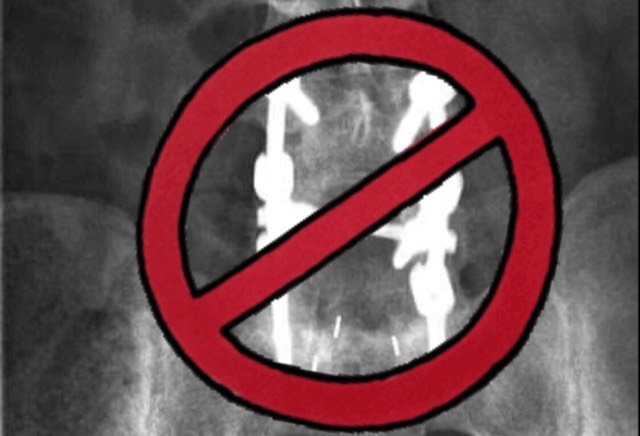This blog is excerpted from Pain News Network, originally written by Pat Anson, PNN Editor on June 15, 2020.
Researchers at Hospital for Special Surgery (HSS) in New York City presented new study findings, regarding surgical outcomes for patients undergoing minimally invasive decompression surgery versus minimally invasive fusion surgery, at the 2020 annual meeting of the American Academy of Orthopaedic Surgeons.
“Our study is the first of its kind to look at return to activities and discontinuation of narcotic pain medication after single-level lumbar decompression or single-level lumbar spine fusion performed with a minimally invasive technique,” said Sheeraz Qureshi, MD, MBA, HSS spine surgeon and the study’s senior investigator. “In our study, all the patients in both groups were able to resume driving and return to work within three weeks of surgery. When you compare this time frame to that of standard open spinal fusion surgery, it’s really striking. Patients having a standard spinal fusion could take six months or longer for a full recovery.”
Degenerative conditions of the lumbar (lower) spine, such as a herniated disc or spinal stenosis, are common causes of pain and disability. Patients may consider surgery when conservative treatments such as medication and physical therapy fail to provide relief. Lumbar decompression surgery is performed to relieve pain by removing a small section of bone or part of a herniated, or bulging, disc that is pressing on a nerve. Spinal fusion, a more extensive surgery, is performed to eliminate painful motion. Surgeons join two or more vertebrae together, sometimes using screws and connecting rods. Minimally invasive spine surgery has gained in acceptance and popularity, Dr. Qureshi said. The technique uses smaller incisions than standard spine surgery and aims to minimize damage to nearby muscles and other tissues.
The study included patients who had elective one-level MI lumbar decompression or one-level MI lumbar spine fusion between April 2017 and July 2019 by a single orthopedic surgeon at HSS. Patients included in the analysis were driving or working before surgery, or were administered narcotic pain medication post-operatively.
Investigators found that it took the 117 decompression patients a median of three days to discontinue narcotic pain medication, while it took a median of seven days for the 51 spinal fusion patients. Although minimally invasive fusion surgeries reduce incision sizes and tissue damage overall compared to open spine fusion surgeries, MI fusions are still more extensive surgeries, so pain medication may be needed for a longer period of time, according to Dr. Qureshi.
With respect to driving, the analysis included the number of patients who were driving pre-operatively and returned to driving after surgery. It took 88 decompression patients a median of 14 days to resume driving, while the 45 fusion patients took 18 days.
Go Where Minimally Invasive Spine Surgery Began: The Bonati Spine Institute
Dr. Bonati of the Bonati Spine Institute invented and patented what we now know as “minimally invasive spine surgery.” However, the Bonati Spine Procedures go beyond “minimally invasive,” providing targeted, precision results unavailable at any other spine facility in the world. Our procedures have received FDA approval for the use of laser and other patented tools & techniques, developed by Dr. Bonati. We do NOT perform fusion surgeries, nor do we perform surgeries where hardware or devices of any kind are inserted into the spine. We’ve been able to eradicate pain for thousands of guests who were told by other physicians nothing could be done for them, and we can review your condition, as well. If you would like to speak to a Bonati patient advocate about your case, simply call 844-663-0310 or complete our contact form here and we will be happy to reach out to you directly to discuss.
Read the full article from Pain News Network here: https://www.painnewsnetwork.org/stories/2020/6/15/patients-recover-sooner-from-minimally-invasive-back-surgeries
Read the full press release from the Hospital for Special Surgery here: https://news.hss.edu/study-finds-similar-short-term-outcomes-after-two-common-minimally-invasive-spine-procedures/

